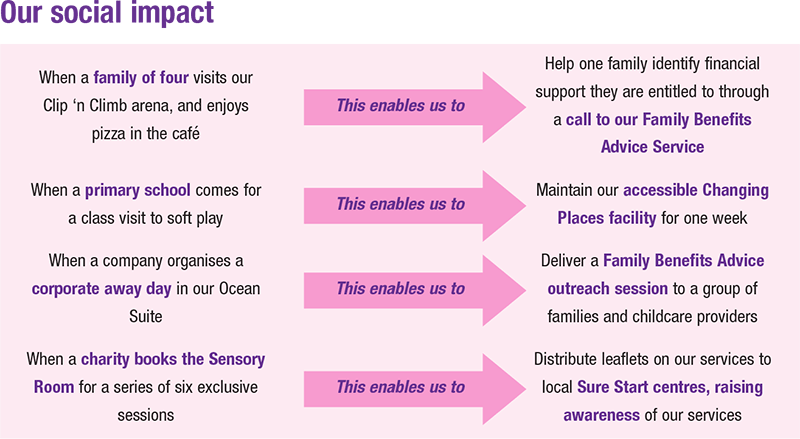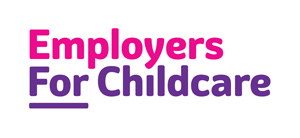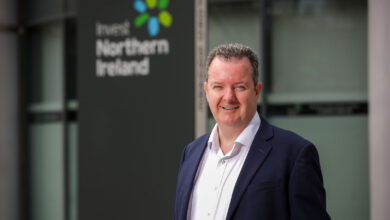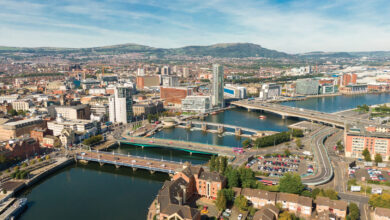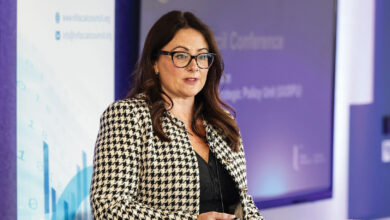Social enterprise of the year with big plans for the future
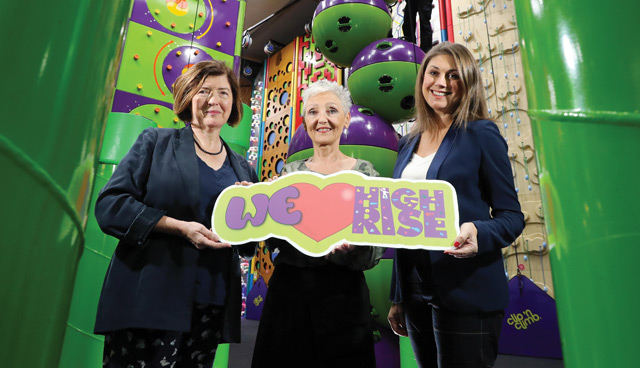
2019 was a big year for Employers For Childcare. Our 20th year in business was a year of huge achievements, with the opening of our fabulous new indoor adventure centre, High Rise, in Lisburn, in what was a £2.5 million investment for the organisation.
We also enjoyed numerous awards successes, picking up the Social Enterprise of the Year Award at the Social Enterprise Northern Ireland Awards, and our pioneering Chief Executive, Marie Marin, being recognised as Woman of the Year in Social Enterprise for the UK in London. Marie also picked up a Lifetime Achievement Award for her commitment to the social enterprise industry in Northern Ireland over the past two decades.
Since opening its doors in October, High Rise has welcomed almost 20,000 guests, from toddlers taking their first steps on our soft play frame, to adults conquering their fears on our eight metre high climbing walls, to corporate groups enjoying team-building exercises and children with special and additional needs benefiting from the facilities of our innovative Sensory Room. With 100 per cent of the profit from High Rise invested in the work of our charity, every time a guest enjoys a visit to High Rise, they are also helping us to deliver vital support for families.
Supporting the work of our charity
Our Family Benefits Advice Service works with parents all across the UK, to identify the financial support they are entitled to, with the overall aim of supporting them to get into, and stay in work. Last year, having invested £500,000 in our charity as the result of our social enterprise activities, we were able to identify collective financial support of £10.4 million for families. That doesn’t include the additional £15.5 million we have generated in terms of increased economic output across the UK by supporting out of work parents to move into employment.
Team-building at High Rise
So, if you are looking at ways in which your organisation can also generate a positive social impact, why not consider organising a company away-day, team-building outing, or even hosting a meeting or event at High Rise in 2020? Our Ocean Suite, located on the first floor Mezzanine, is fully equipped with everything you need for a meeting or strategy session while our Clip ‘n Climb arena provides the perfect venue for some challenging team-building activities. These can be co-ordinated and led by our enthusiastic team of fully trained climbing instructors. All catering is provided in-house from freshly baked scones and coffee on arrival, to your choice of lunch from our delicious café menu and even our chef’s homemade traybakes as an afternoon pick-me-up! We look forward to welcoming you to High Rise, whatever the occasion.
W: www.employersforchildcare.org
E: hello@employersforchildcare.org
T: 028 9267 8200
W: www.highriseni.org
E: contact@highriseni.org
T: 028 9263 6195

